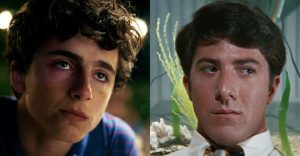Death On The Nile Retcons Murder On The Orient Express’ Ending Tease

Warning: Spoilers ahead for Death on the Nile
Death on the Nile retcons Murder on the Orient Express’ ending tease. Death on the Nile is adapted, like its predecessor, from an Agatha Christie novel. Kenneth Branagh returns to direct, reprising his role as esteemed detective Hercule Poirot. But while the film serves as a direct sequel to Murder on the Orient Express, it sidesteps delivering on the latter’s ending setup.
Death on the Nile sees Poirot on holiday in Egypt, but bumps into his old friend Bouc, who invites him to join the wedding party of Linnet Ridgeway, an heiress, and her husband Simon Doyle, who have rented a private boat to tour the Nile River in a bid to prevent Jacqueline de Bellefort, Simon’s ex-fiancée, from following them. However, when Linnet is murdered under mysterious circumstances, Poirot sets out to solve the case and discover the killer’s identity before anyone else gets hurt. This entire plot setup is entirely different from how the detective seemingly finds out about the murder on the Nile at the end of the first film.
After solving the murder mystery in Murder on the Orient Express (and letting the passengers go), Poirot arrives back in London, but his detective services are requested to solve a “murder on the bloody Nile.” Naturally, this teaser seemingly set up what Poirot would be doing in Death on the Nile. Fast forward to the events of the sequel, which confirms Poirot did go to Cairo to solve a murder mystery. But, it was a completely different case than the one he’s actually tasked with in Death on the Nile. This essentially retcons the ending of Murder on the Orient Express and makes the teaser setup in the film wholly unnecessary. The murder on the Nile in the second Poirot film doesn’t actually happen until the renowned sleuth is already on the boat with the people who eventually become suspects. Receiving the note from the British Army messenger at the end of Murder on the Orient Express wouldn’t have made sense in the context of the sequel since the former’s ending implied the murder had already happened.

In fact, the reason Poirot goes to Egypt at all in Death on the Nile is to investigate Rosalie Otterbourne, jazz singer Salome Otterbourne’s niece and manager, on behalf of Euphemia, Bouc’s mother. Euphemia is unhappy Bouc is with Rosalie and wants to find out if there’s something in her history she could use to break them up. Linnet’s murder is secondary for Poirot (until it isn’t). Ultimately, revealing Poirot returned from Cairo at the start of the film only to send him back for something entirely different doesn’t do justice for the ending setup from Murder on the Orient Express. Why tease the events of Death on the Nile at all in the first film if the sequel wasn’t going to capitalize on it? The two films remain connected because of Poirot’s presence and his friendship with Bouc, but if one were to watch the two films back-to-back, they would find a lot to be desired by the ending teaser referencing a murder case that happened offscreen.
Circumstances change between one film and the next and it’s possible Murder on the Orient Express was teasing the murder mystery on Death on the Nile, but only to keep fans hooked before the filmmakers decided to go another route at the start of the film. However, involving Poirot with the characters in Death on the Nile before the killer actually strikes sees the detective there by pure happenstance and negates the ending of the first film to the point that it wasn’t needed at all for the sequel to work and stand on its own.
- Death on the Nile (2022)Release date: Feb 11, 2022
About The Author


















